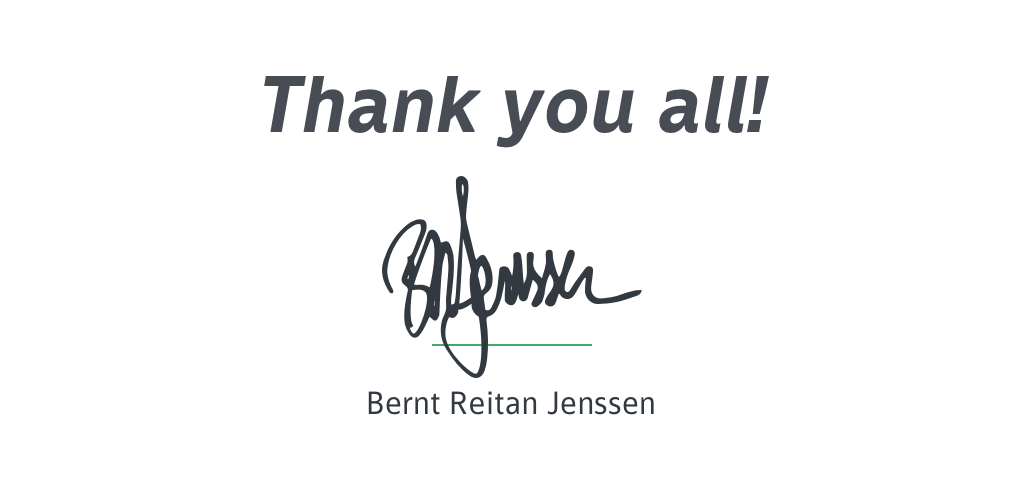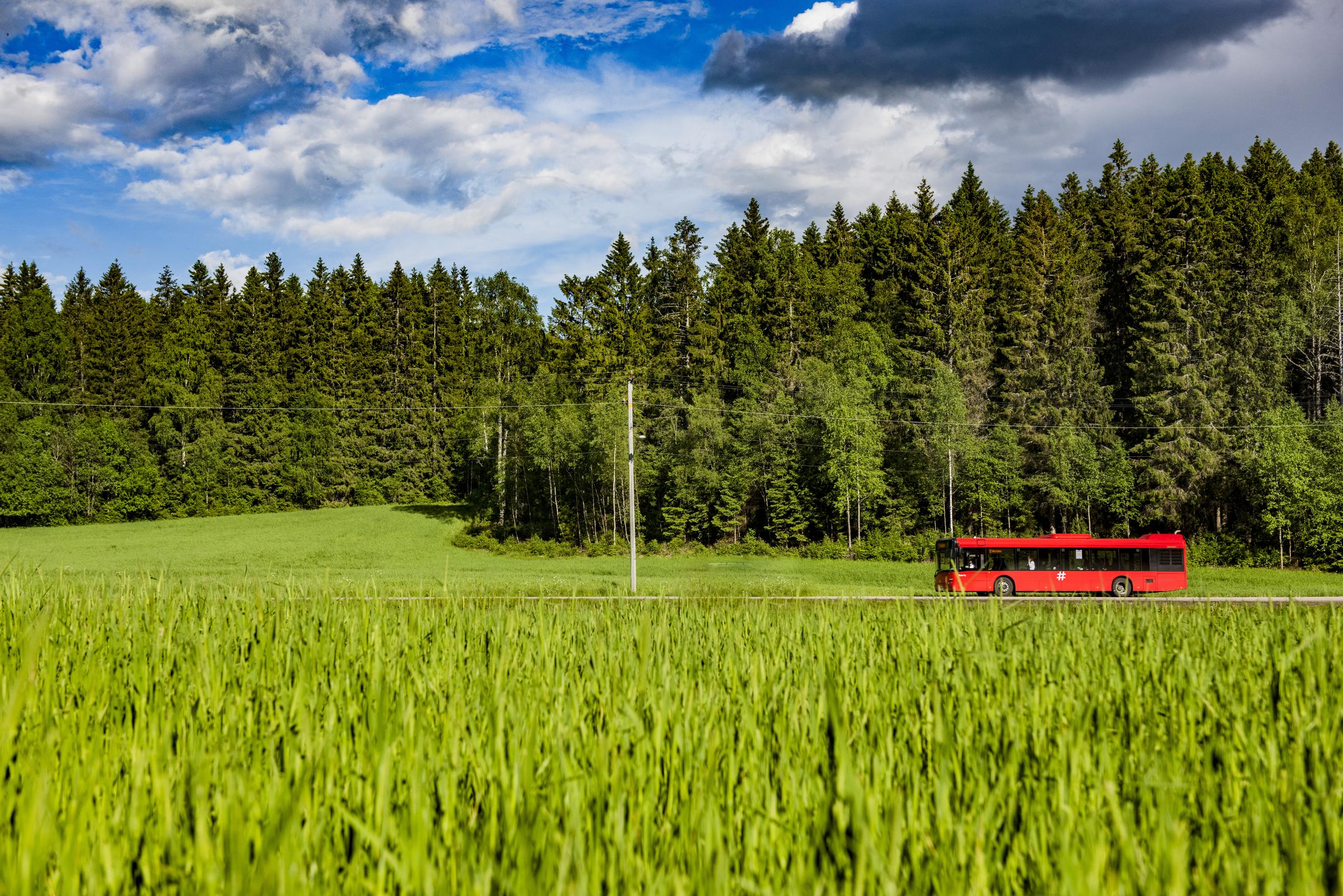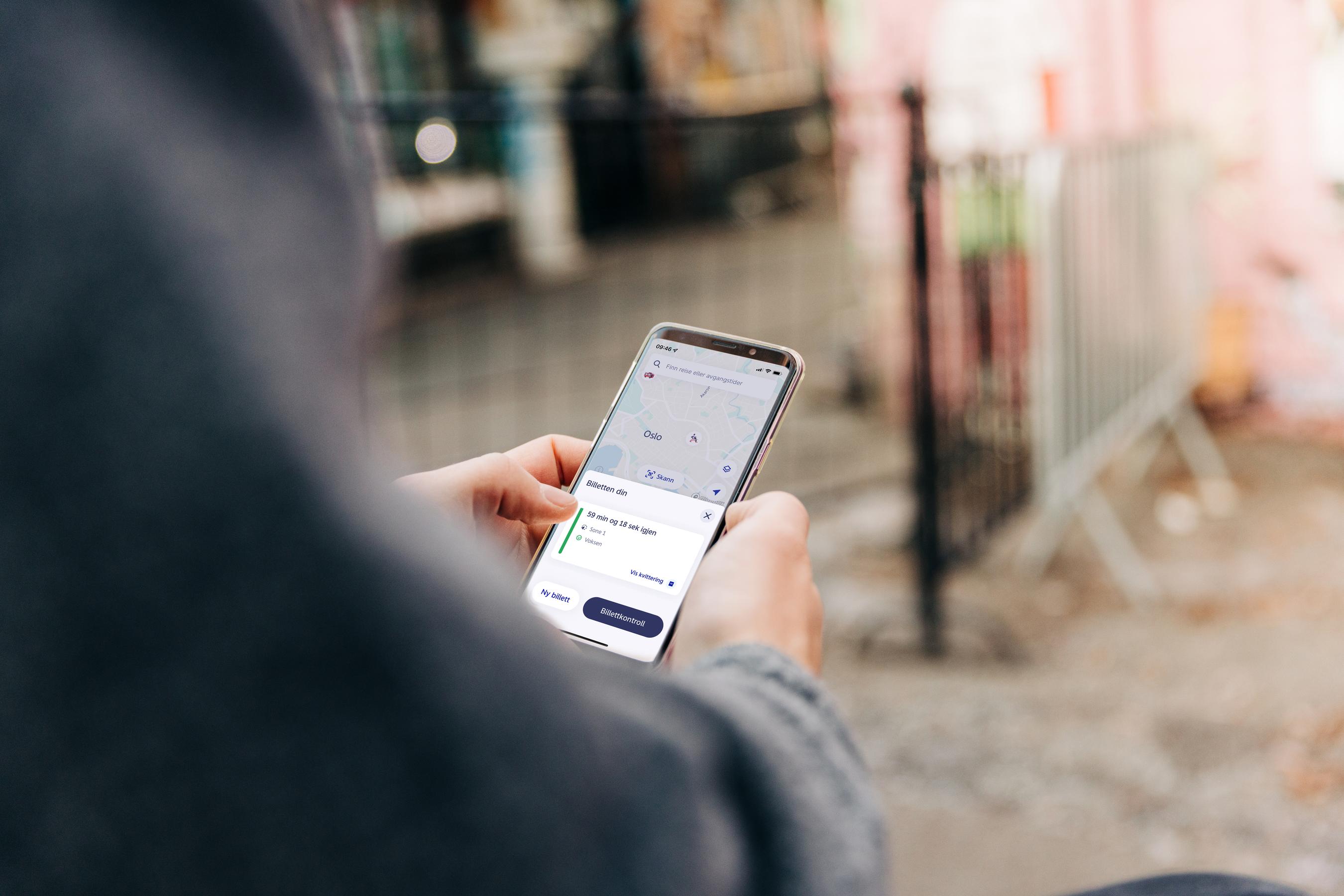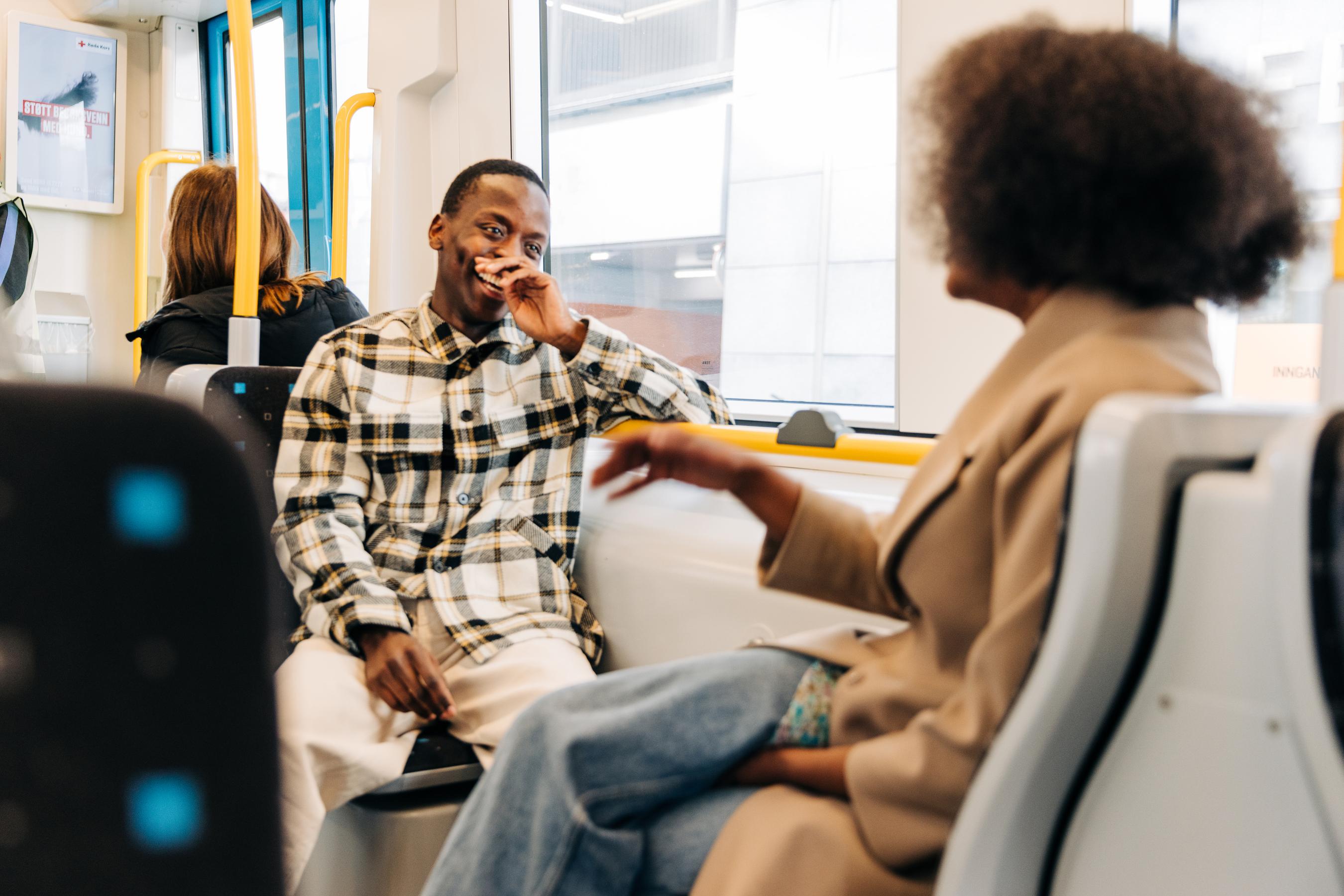
A word from the CEO
From the new normal to a better normal
Throughout 2021 we were looking for the new normal. We still do not know what it will look like. What we do know is that Ruter aims to create a better normal after the pandemic. Which means we have to listen to our customers.
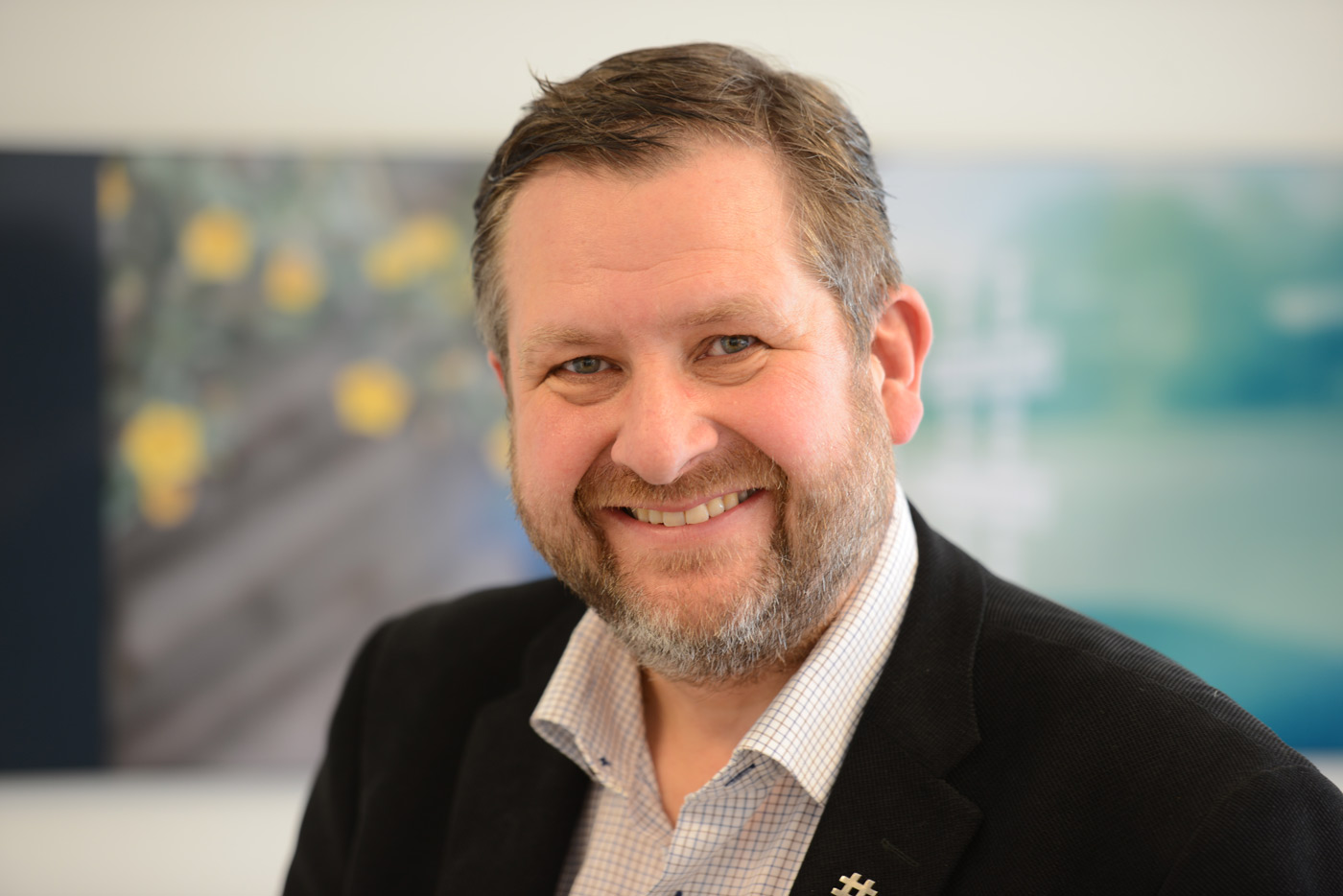
In 2020, the first year of the pandemic, our obligations to society were clear. We had to help to ensure that everyone in critical jobs could get to work – including doctors and nurses, waste disposal workers, firefighters and grocery store staff. Everyone else was encouraged to avoid public transport unless they had no other option.
2021 was unpredictable and proved to be far more challenging than the previous year. Not because our obligations had changed, but because the whole situation had become more unpredictable than ever. Infection rates performed continuous U-turns. This was combined with great uncertainty about the financing and continuation of our service offering as it was.
It can almost be compared to a boxing match. Once the summer was over, we went into the ring, ready for a new fight against a new opponent, the last remnants of the pandemic. After Christmas, the feeling was more like going battered out into the ring after eight rounds, ready to embark on the ninth.
Rather than spending the year adjusting to the new normal, we spent our time on short-term crisis thinking and financial planning, which was constantly thrown up into the air. Plans we made one week were rejected the next. This made the working day tough for many at Ruter. But this was all about something bigger than us. It was about preventing our customers from experiencing a reduced service and putting back the capital region’s fight for emission cuts back several years.
“Our aim is to create a transport system that is more sustainable, attractive and useful to society than the one we left behind in 2019”
A common understanding
In 2021 we worked hard to build up a common understanding of the importance of maintaining our public transport system.
Half of Oslo’s emissions come from road traffic. Just from 2019 to 2020, emissions from road traffic fell by 6%. A well-developed and efficient public transport system is crucial in order to ensure that this positive trend continues. That is why our message throughout the pandemic was clear. If we are forced to make public transport less attractive as a result of fewer customers and loss of revenue, we will be embarking on a negative service spiral. If our service gets worse, even more customers will abandon us, and revenue will be even lower – and the spiral continues.
A negative service offering would be detrimental to Oslo. It takes years to encourage people to choose public transport over their car, but it only takes days to lose them as public transport customers. That is why maintaining an attractive public transport system in this transitional phase that the pandemic has thrust us into is vital.
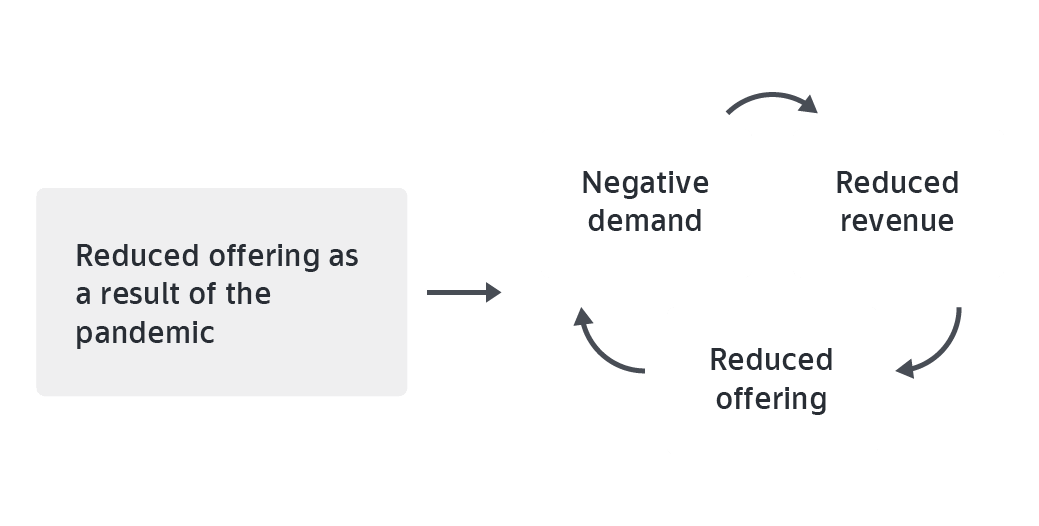 Reduced revenue -> Reduced offering." />
Reduced revenue -> Reduced offering." />If we reduce our service:
… we will not be able to re-attract old customers who went back to using their car during the pandemic.… we will not be able to attract new customers.
Who pays the price? The climate, the environment, the community and those who do not have other travel options, but who will have to continue to use public transport – only with a poorer service.
During the pandemic, the number of electric cars on the road increased. If the electric car replaces the fossil fuel car, this will benefit the climate, but it does not replace public transport. It also challenges our zero-growth target for vehicular traffic. That is why it is so important that we succeed in getting new electric car owners back on buses, trams, boats, trains and metro. To avoid the negative service spiral, we are working hard to gain the necessary insight that will enable us to take fast and effective decisions.
The common understanding of the importance of maintaining our public transport offering is something we created in close cooperation with the new government, our shareholders and the rest of the public transport system. I feel that we have very much succeeded in this. We have been heard, our advice has been followed and the required finance was often put in place at the eleventh hour.
Now we have reached a phase of the pandemic where we have to start looking to the future. We are entering a new and possibly more demanding phase: the transitional phase. Our aim is to create a transport system that is more sustainable, attractive and useful to society than the one we left behind in 2019.
Ticket revenue vs. corona subsidies
Ticket revenue fell by NOK 2,224 million compared to our budgeted level. In total, we received compensation of NOK 2,259 million, including added costs of NOK 35 million. We still anticipate a significant fall in ticket revenue beyond 2022.
“In order to increase ticket revenue, we have to ensure that new as well as existing car users choose to take public transport in the new normal.”
– Bernt Reitan Jenssen, CEO
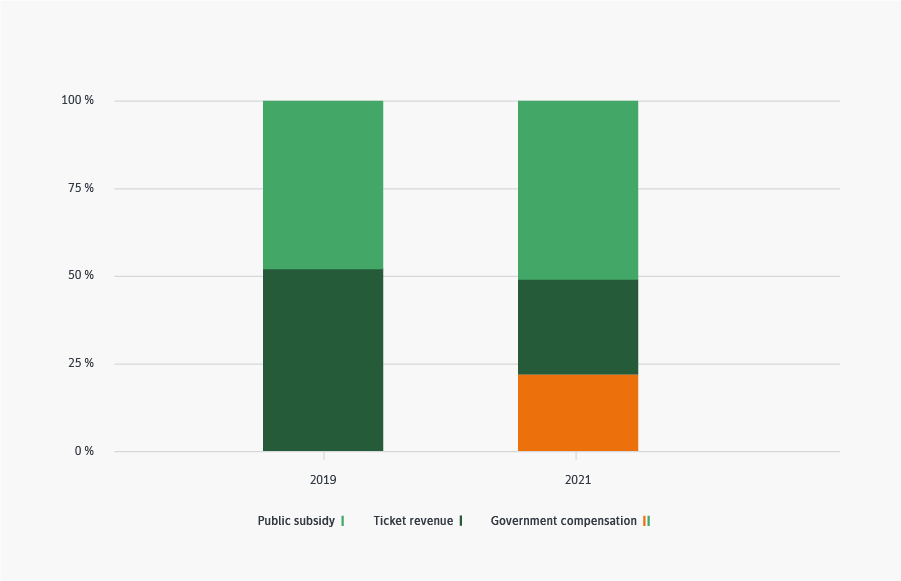
A better normal
One thing I have been sure of throughout the pandemic is that a crisis provides the opportunity for enhanced learning. After the pandemic, Ruter will work towards adapting its service to a new and changed world. No one knows what the new normal is or will be. Not even the customers. We know that we have to use all the means we can and maybe think innovatively about public transport services as a whole. This means looking at both restrictions and positive initiatives from a fresh perspective. Being able to react quickly to the unexpected will be important. We are seeing that our continuous strategic work and vision on sustainable freedom of movement is holding up.
This is how Ruter needs to build the public transport service of the future

Our greatest victory
The pandemic affected our working day, every decision, every figure and every thought at Ruter in 2021.
We handled corona outbreaks and lockdowns. We delivered on the planned as well as the unexpected. We twisted and turned in order to adapt. I am proud of what we achieved.
Our greatest victory is that we were able to provide reasonably predictable and safe travel throughout the year and throughout the pandemic. Regardless. Our role meant that we helped those who were able to travel.
At the lowest point, passenger numbers were at just a third of their normal level. This gave us important insight into how many of us actually have to take the bus, tram and metro in order to ensure that society keeps running.
I want personally to thank all drivers, communication workers, guards, ticket inspectors and other staff who have taken personal risks to keep the wheels of society in motion.
“We are proud of the fact that, in partnership with our colleagues in the public transport sector, we ensured that those who had to travel were able to get to their destination safely throughout the pandemic.” Bernt Reitan Jenssen, CEO
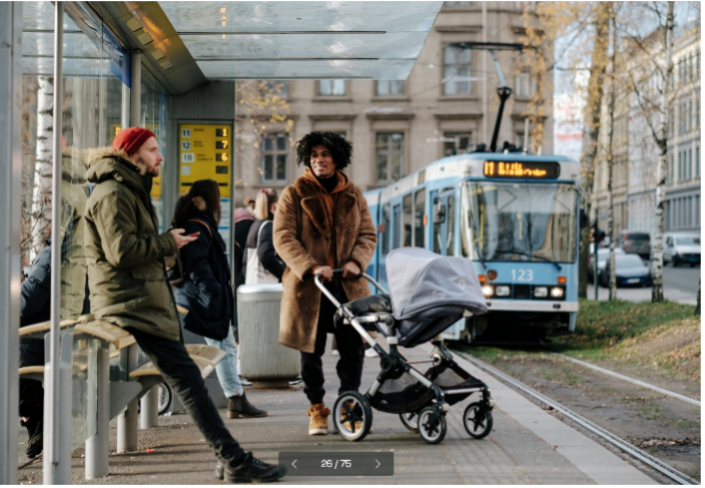
Volunteers without equal
When the media describe the pandemic, they often show images of a tram or a bus. This can give a misleading impression. Tracking and tracing infection rates on public transport is admittedly complicated, but all the indications are that it was relatively safe to travel by bus, tram, metro and boat during the pandemic.
We can thank our operators and partners for this. They put the necessary infection control measures in place quickly and seamlessly and maintained them throughout the pandemic.
We can also thank our customers for complying with face mask and social distancing rules and refraining from travelling by public transport unless they really had to. Just as we requested.
Normal life is now returning. But we need our customers to do one more thing voluntarily. During the pandemic, the proportion of people buying tickets fell significantly. At the lowest point, one in five customers did not pay for their journey. If everyone pays, it means several hundred million kroner in ticket revenue, which contributes to maintaining an excellent public transport system.
We are keeping our eyes on the future
In the midst of the short-sighted everyday reality of the pandemic, we managed to keep an eye on the future. Because the public transport system of the future is created today. That is why we have:
… continued to test self-driving buses, to examine how technology can provide our customers with an even better service
… continued to work on raising awareness about what is required in order to develop a service that can be used by everyone, in close cooperation with the Norwegian Association of the Disabled
… tested how bicycles and other mobility aids put in an organised system can complement Ruter’s public transport services offering
… launched a new and better Ruter app which is continuously being updated
… worked on developing new and innovative ticketing systems
… continued work on reducing our climate and environmental footprint and staying on course towards our Zero Emissions 2028 target
… tested artificial intelligence in customer service in order to offer our customers faster and better answers to their questions
… continued to pilot and develop age-friendly transport in order to offer our passenger’s customised services
We must work closely with our customers to discover the new normal. We want to be curious and courageous in addressing the new normal we know will come. We do not yet know what it will look like, but we will play our part in making it a better normal than the one we left behind in 2019.
A good team is vital
Many thanks to all of you who have been with us on the challenging journey through 2021. Thank you to all our great partners in the public transport sector who in an extraordinary effort helped to keep the wheels turning.
Thank you to everyone who had to use the public transport system and who was so good at following health authority guidelines.
Many thanks to all the approximately 5,500 employees across more than 20 companies, Sporveien, our largest partner, and Oslo Municipality and Viken County Municipality, our shareholders, who work every day to ensure that everyone who lives in the Oslo region can enjoy an excellent and reliable public transport service.
I look forward to continuing the work of creating a better normal in partnership with all of you.
